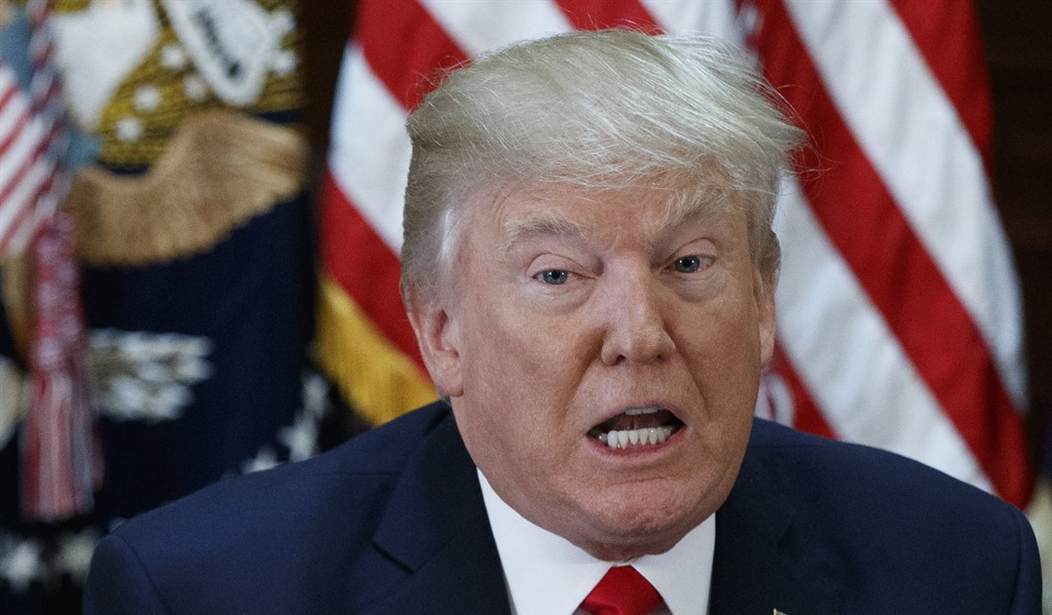One of President Trump’s first big moves upon taking office (wildly applauded around these parts) was a freeze on federal hiring with an eye toward dramatic cuts in the size of the federal government. This was supposed to usher in an era of trimming down the federal behemoth, reducing costs and lessening the impact of Washington on the day to day lives of the average citizen. The freeze was always designed to be temporary, allowing time for departments to come up with plans as to how they would tighten their belts going forward. This week the freeze was lifted early and it sounds as if the promised, long-term reduction plans are still mostly theoretical. (Government Executive)
The Trump administration announced its hiring freeze will end Wednesday, while delivering to agencies promised guidance on how they should reduce the size of their workforces in both the near and long term.
Trump’s hiring freeze, which went into effect Jan. 23, lasted 79 days, with the Office of Management and Budget issuing guidance to end it 11 days before the president’s initial deadline. While agencies are allowed to begin hiring again without restriction or approval from the Office of Personnel Management, OMB Director Mick Mulvaney said Tuesday they cannot begin onboarding employees “willy-nilly.”
I’ll give credit to Mulvaney for at least trying to stick with the spirit of what Trump was trying to do, but there wasn’t much of an explanation given as to why the freeze needed to end eleven days early. And with the freeze lifted, who is minding the store in terms of the general arc of hiring and staff size management? Sure, the OMB is telling all of the departments not to “begin onboarding employees willy-nilly” but we’re talking about the federal government here. In my experience, that’s like leaving a huge bowl of candy out in front of a group of kids and telling them “not to eat too much” before you walk out the door.
There’s also more than a bit of concern about the implementation of the long term downsizing plans. The guidance that went out sounds rather generic and the first draft proposals for reduction schedules from each department aren’t even due until June. Then there’s a review period prior to finalized plans coming in September. And all of it is now geared toward some hypothetical implementation in fiscal year 2019. Are you kidding me? That’s most of the way through Trump’s first term. We’re not talking about building a new national infrastructure here. It’s a case of scaling back some programs, eliminating others and deciding who the poor performers and redundant staff are and giving them pink slips. This really doesn’t need to take two to three years, folks.
At the same time we’re getting some mixed signals from the White House as to what the overarching goal is here. Most recently, Trump’s team indicated that they are planning to “rebuild the federal government starting from scratch.”
Compared with past administrations’ efficiency efforts, the Trump approach “has never been done before. The government structure has never been rebuilt,” he told reporters, “and this goes much deeper, to the very structure of government.” It amounts to “restructuring Washington, D.C.”
Mulvaney acknowledged he had not studied the proposals President Obama sent up to Capitol Hill in 2012 and 2015, which sought efficiencies by consolidating several agencies into a new Trade and Business department, nor did he recall the reform efforts under Presidents Clinton or Reagan.
That all sounds good, but it’s really just a 10,000 foot level approach more suited to a campaign speech. You already won the election, guys, and this is where the rubber meets the road. Talking about it isn’t enough. We actually need to do it, otherwise all the good will you’ve managed to build up from conservatives is going to evaporate.
The honeymoon period isn’t going to last long for the Trump administration, assuming there even was one. We gave you guys the ax. It’s time to start chopping.








Join the conversation as a VIP Member